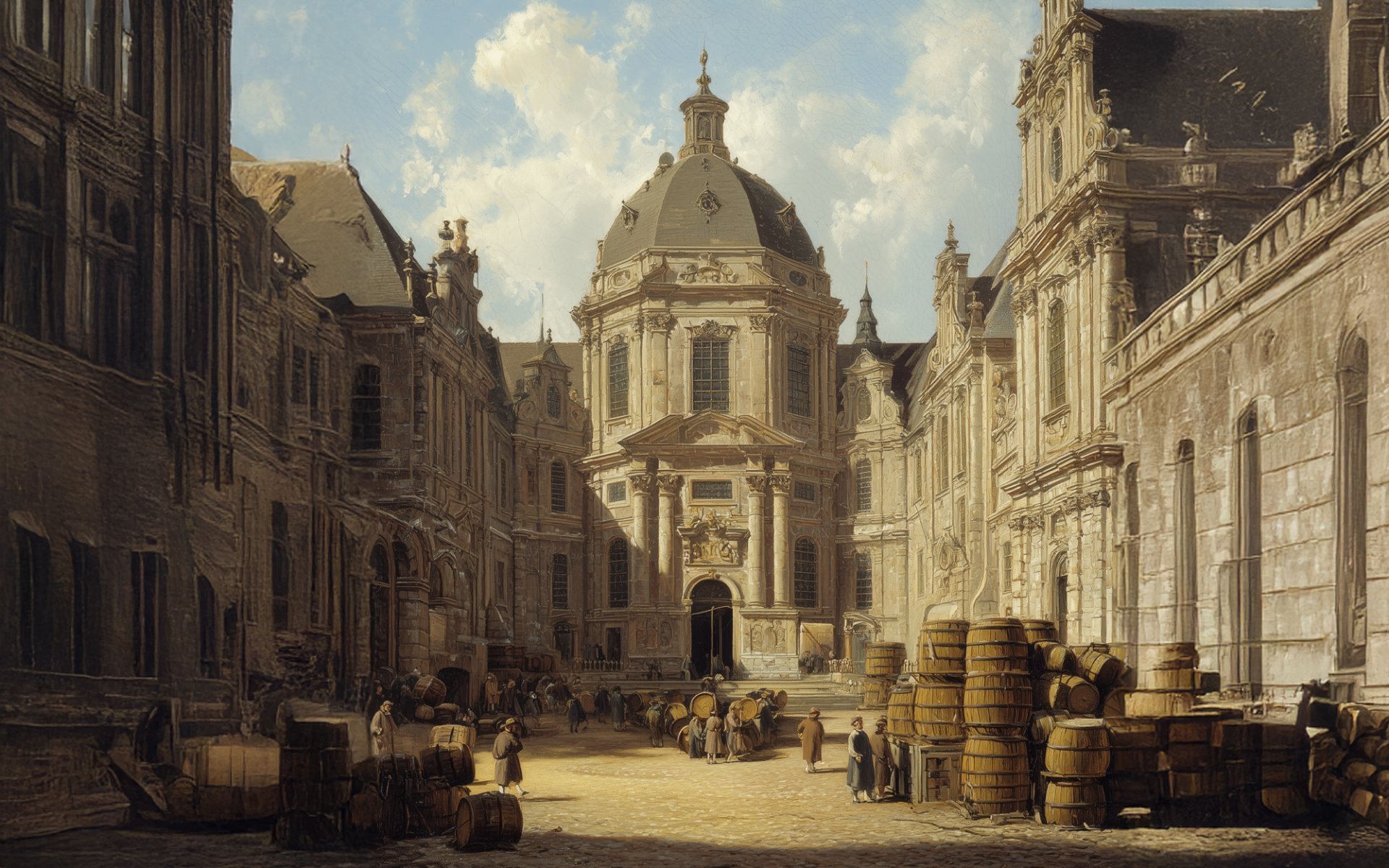Paulaner

Paulaner: More Than Just Beer, A Cultural Heritage of Munich
"Paulaner" is not merely the name of a renowned brewery; it is a symbol of Germany's long history and brewing expertise. Located in Munich, Bavaria, this brewery has deep roots, having been founded by the Paulaner Order (or The Order of Minims) in 1634. Today, Paulaner is recognized as one of the six prestigious breweries with the right to produce beer for the world's largest beer festival, Oktoberfest, a legendary event that attracts people from all corners of the globe.
Origin at the Monastery: Beer of Faith and Sharing
The influence of the Christian Church played a profoundly significant role in Germany's brewing culture as early as the 12th century, with over 100 monasteries crafting their unique beers. The beginning of the Paulaner brewery followed a similar path, originating from a group of monks at the Neudeck ob der Au monastery in Munich. They began producing beer for noble purposes: to distribute to the poor and to sell in the monastery's tavern, serving as a source of income and an integral part of their daily life.
The beer produced in those days adhered strictly to the "Reinheitsgebot," or German Beer Purity Law, enacted in 1516, which stipulated that only three ingredients could be used: water, barley, and hops (yeast was added later). Paulaner's early beer was known as "the Paulaner Salvator," a high-strength, dark brown beer with a distinct, chocolate-like aroma. It was a nourishing beverage that became popular among those who received it and visitors to the monastery.
From Complaint to Celebration: The Birth of Paulaner Salvator
The name of the Paulaner brewery was first officially recorded on February 24, 1634, as part of a document where citizens of Munich complained to the authorities about the monks' beer business competing with local brewers. Despite being a complaint, this date is implicitly recognized as the founding day of the Paulaner brewery today.
However, a significant turning point occurred in 1751 when the Paulaner monks received official permission from the Bavarian ruler to brew beer specifically for the Feast Day of Saint Francis of Paola, the founder of their order. The beer brewed especially for this occasion was called "St. Vater Bier" (Saint Father Beer). Over time, the name "St. Vater" was corrupted, eventually giving rise to the famous Paulaner "Salvator" we know today.
At this celebration, in addition to widespread public participation, a tradition was established that continues to this day: the reigning Bavarian ruler would be the first to taste the freshly brewed beer of that batch and receive one liter of it. This custom is still practiced at the "Starkbierfest" (strong beer festival) in Munich, demonstrating Paulaner's long-standing connection to Bavarian beer culture.
Development and Transformation: From Monastery to Public Brewery
In 1780, the brewery obtained a full license to produce and serve its own beer independently, officially becoming "Paulaner Brewery." They continuously developed their brewing methods and equipment under the guidance of Valentin Stephen Stil, also known as Brother Barnabas, who visited the Neudeck ob der Au monastery in 1806. The beer recipes he created remain the foundation of Paulaner beers today, a testament to his vision and creative ability.
Another pivotal moment occurred when the entire Paulaner brewery business was acquired by Franz Xaver Zacherl in 1818. This transaction fully transitioned the brewery from monastic ownership to a public entity, yet it faithfully preserved the spirit of quality and original tradition.
Paulaner and Oktoberfest: A Shared Genesis of Legend
Around this same period, in October 1810, a historic celebration took place to commemorate the marriage of Crown Prince Ludwig of Bavaria and Princess Therese of Saxony-Hildburghausen. This public event was held on a large field outside Munich's city walls and is remembered as the first "Oktoberfest" in history, now one of the world's largest and most famous festivals.
Eight years after that first Oktoberfest, beer stalls began to be set up within the festival grounds. Paulaner gained the right to be one of the beer providers at Oktoberfest because its beer was brewed in strict accordance with the Reinheitsgebot and was produced exclusively within the city of Munich. Paulaner's inclusion as one of the "Munich Six" the six primary breweries of Oktoberfest cemented its legendary status and international recognition for quality.
Innovation and Global Renown of Paulaner
Paulaner is renowned for being a leader in many aspects. For instance, it was the first brewery to adopt the refrigeration technology invented by the famous scientist Carl von Linde in 1881. This innovation revolutionized the brewing industry, enabling year-round beer production, no longer confined to the colder months.
Beyond the traditional Salvator, Paulaner's Weissbier, or wheat beer, is another famous and top-selling variety. It is light in color with a refreshing, fruity aroma, beloved by beer enthusiasts worldwide. Paulaner continued to innovate, becoming the world's first producer of alcohol-free wheat beer, launched in 1986 and now commercially known as "Hefe Weissbier Non-Alcoholic," demonstrating their forward-thinking vision and commitment to meeting diverse consumer needs.
Today, Paulaner is managed by the Schörghuber family, who acquired the business in 1979, maintaining its reputation for excellence. Paulaner is one of the six best-selling German beers globally, exported to over 70 countries, and hosts Oktoberfest events in various nations to spread German beer culture. Additionally, a special seasonal lager, "Paulaner Oktoberfest," is released every autumn in America, eagerly anticipated by beer lovers each year.
Paulaner produces as many as 13 types of beer under three main categories: Wheat Beer (Weissbier), Munich Beer, and Specialty Beer. This diversity reflects their commitment to innovation and catering to every taste. With the success of exporting over 100 million liters of beer worldwide in 2016, Paulaner has truly solidified its position as a global leader in the brewing industry.


